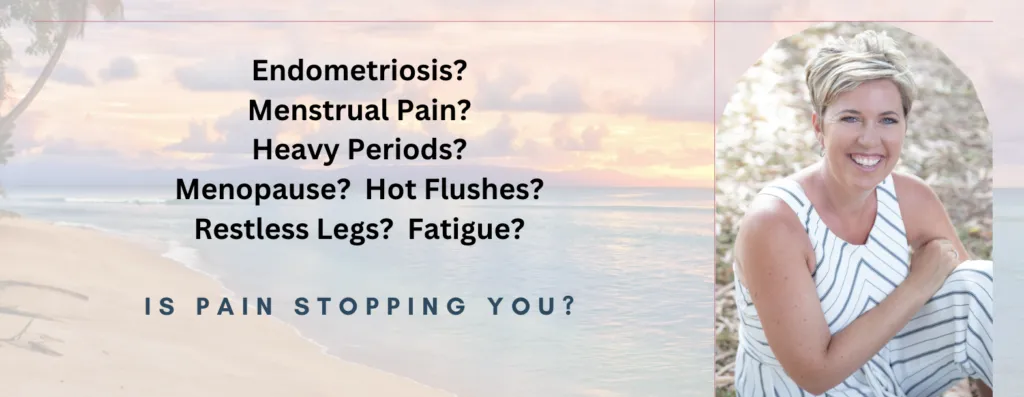The Hidden Costs of Anxiety: How to Take Back Your Life
The Hidden Costs of Anxiety: How to Take Back Your Life
Published: December 10, 2024

Personal Goals:
Spend more time with the family
Make self-care a priority
Go on a holiday at least once a year
OR
Professional Goals:
Gain more clients or custom
Earn more money
Explore further avenues
BUT... None of this is happening!
There are probably many legitimate reasons including a fully packed life that is blocking you from smashing those goals but...
Have you ever considered that perhaps they are just excuses? After all, it’s much easier to think about them, even write them down under the pretense you are "going after them". It's almost like you are telling yourself...
"I am going to accomplish these goals this year, don't you worry self, it's going to happen."
but then...
"Why is everything so complicated and hard... I never have enough time to get where
I want to go..."
The thing is it's so much easier to blame time, family commitments, or the dog. What you may not know is you could have real blocks that are contributing to the stalemate of achieving your goals rather than procrastination
(lightbulb moment!)
While there may be numerous obstacles standing between you and your goals, they are not insurmountable. By acknowledging and addressing these barriers head-on, you can empower yourself to break through limitations and achieve success. Stay focused, stay determined, and never underestimate the power of your own resilience and determination. Your goals are within reach –
all it takes is the courage to pursue them relentlessly.

Anxiety has a way of creeping into our lives, often unnoticed at first, until its effects begin to ripple through our well-being, relationships, and productivity. While it’s a natural response to stress, chronic anxiety can take a significant toll—one that goes far beyond the emotional discomfort it’s most known for.
From financial strain to physical health issues, the hidden costs of anxiety can accumulate, leaving us drained in ways we might not immediately recognise. The good news? With awareness and intentional action, you can take steps to reclaim your life.
The True Costs of Anxiety
The True Costs of Anxiety
Anxiety has a way of creeping into our lives, often unnoticed at first, until its effects begin to ripple through our well-being, relationships, and productivity. While it’s a natural response to stress, chronic anxiety can take a significant toll—one that goes far beyond the emotional discomfort it’s most known for.
From financial strain to physical health issues, the hidden costs of anxiety can accumulate, leaving us drained in ways we might not immediately recognise. The good news? With awareness and intentional action, you can take steps to reclaim your life.

Financial Burden
Anxiety can lead to a cycle of financial strain. Frequent doctor visits, medication, or therapy sessions can add up. Moreover, missed workdays or decreased productivity can impact income. For some, anxiety triggers impulsive spending as a coping mechanism, further compounding financial challenges.
Physical Health Impacts
Chronic anxiety isn’t just “in your head.” It manifests physically, contributing to headaches, digestive issues, insomnia, and even cardiovascular problems. Long-term stress can weaken the immune system, leaving you more susceptible to illnesses that require time and money to address.
Strained Relationships
Anxiety often brings irritability, withdrawal, or excessive worry into personal and professional relationships. Misunderstandings and frustration can arise, leading to isolation or conflicts that erode the support systems needed for recovery.
Opportunity Costs
When anxiety dominates your thoughts, decision-making can suffer. Whether it’s hesitating on career opportunities, delaying life goals, or avoiding social engagements, the opportunities missed due to anxiety can have long-term repercussions.
Taking Back Control

The path to overcoming anxiety starts with understanding its effects and taking proactive steps to address them. Here’s how:
Seek Professional Help
Therapy, such as cognitive-behavioral therapy (CBT), is a proven method for managing anxiety. Medication can also be an option for severe cases, but it’s essential to consult with a healthcare professional to determine the best approach for you.
Prioritise Self-Care
Physical health and mental well-being go hand in hand. Regular exercise, a balanced diet, and quality sleep can reduce anxiety symptoms significantly. Mindfulness practices, such as meditation or yoga, can also help you regain a sense of control.
Build a Support Network
Openly sharing your struggles with trusted friends or family can ease the burden. Joining support groups—whether in-person or online—provides an additional sense of community and understanding.
Set Boundaries and Manage Stress
Identify triggers and set boundaries to protect your mental space. This might mean limiting exposure to stressful environments, practicing assertiveness in relationships, or managing your workload to avoid burnout.
Invest in Long-Term Growth
Take small, consistent steps to rebuild confidence and resilience. Pursuing hobbies, setting achievable goals, or learning new skills can help you move past anxiety’s hold and focus on a brighter future.
Anxiety’s hidden costs don’t have to define your life. By recognizing the ways it impacts you and taking intentional steps toward recovery, you can reclaim control and find renewed purpose.
Remember, overcoming anxiety is a journey, not a destination. Celebrate small victories along the way and remind yourself that seeking help is a sign of strength—not weakness. Taking back your life from anxiety starts with a single step—make today the day you take it.
If you would like to discuss this further and in private with me, please book a call.



0424-373-597
ann@annolerharris.com
Queensland, Australia
Ann Noler Harris © 2024. All rights reserved.


0424-373-597
ann@annolerharris.com
Queensland, Australia
Ann Noler Harris © 2024. All rights reserved.





